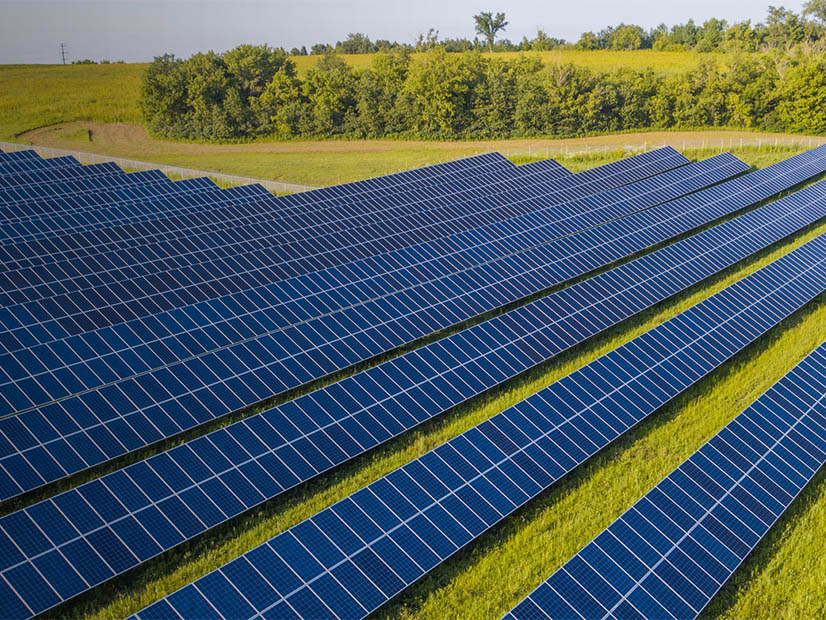LANSING, Mich. — Community solar projects would be legal and regulated by the Public Service Commission under a bipartisan package of two bills introduced in the Michigan Senate this week.
Enacting a community solar system in Michigan, where local projects would be open to both homeowners and businesses, has been a major goal for many environmental and energy activists in the state. With Democrats in control of both the Senate and House for the first time in 40 years, and with solar projects winning favor in rural, mostly Republican areas of the state, observers believe the legislation has a good chance of passing and being signed into law by Gov. Gretchen Whitmer (D).
SB 152 was introduced by Republican Sen. Ed McBroom, who represents the Upper Peninsula, where home solar projects have been growing in popularity. SB 153 was offered by Sen. Jeff Irwin (D), who represents Ann Arbor, a college town that has led many alternative energy and climate change issues in the state.
While solar home projects have been growing in interest and popularity in the state, Irwin said many people still cannot access them because of cost, home design or other issues.
The bills were assigned to the Senate Energy and Environment Committee, but no hearings have been scheduled.
McBroom said utility customers should be able to “choose where their electricity is guaranteed.” The idea of guaranteed power is particularly sensitive to many state residents given the number of major outages electricity customers across Michigan have endured following several major ice and snow storms. (See related story, Consumers, DTE Energy on the Hot Seat over Michigan Outages.)
“These small-scale, local solar projects will be particularly useful to residents, providing an opportunity to independently produce energy for themselves and their neighbors and providing savings on energy bills for those who subscribe,” McBroom said.
Irwin said community solar projects will give businesses, homeowners, schools and churches the ability to connect to more affordable, locally produced electricity. According to the U.S. Energy Information Administration, electric bills in Michigan jumped by 15% from 2020 to 2022.
The bills are tie-barred, meaning one cannot take effect unless the other also passes.
The bills give the PSC one year to create community solar rules, after which projects could be established and set up with financing.
The bills also would bar utilities from eliminating community solar customers from a utility’s customer base and require them to connect projects to the grid. Utilities will be permitted to recoup “reasonable” interconnection costs.



